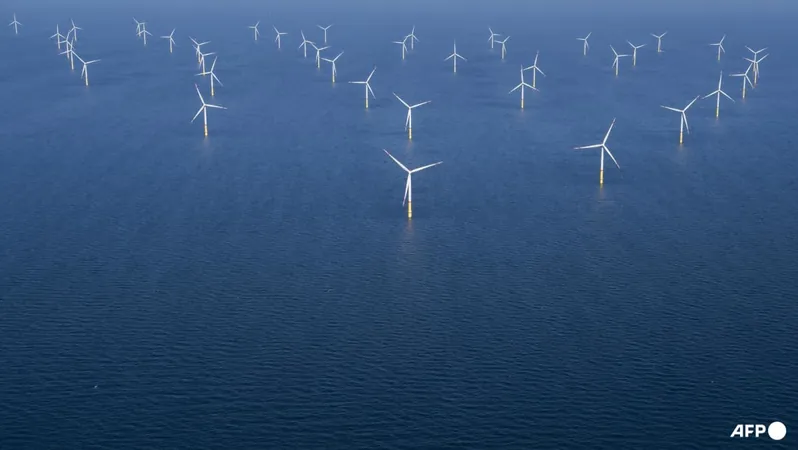
Sweden Shuts Down 13 Offshore Wind Farms Due to Security Threats! What Does This Mean for Renewable Energy?
2024-11-04
Author: Ming
Introduction
STOCKHOLM: In a significant move highlighting the complex balance between defense needs and renewable energy ambitions, Sweden's government has decided to block the construction of 13 offshore wind farms in the Baltic Sea. The announcement, made on November 4, comes after the Swedish military raised concerns about the potential detrimental impact these projects could have on the nation's defense capabilities.
Government's Statement
Climate Minister Romina Pourmokhtari stated in a press conference that the government found the proposed wind farms would pose an 'unacceptable impact on defense interests.' The projects were all set to be developed along Sweden's Baltic Sea coast, an area of strategic military importance.
Military Concerns
A recent report from the Swedish Armed Forces, featured by public broadcaster SVT, warned that the offshore wind farms could disrupt vital military sensors. The towering structures and their spinning blades can emit radar echoes and create other forms of interference that could significantly impair military operations.
Defense Minister's Explanation
Defence Minister Pal Jonson further elaborated on the issue, explaining that the potential disturbances to military radars could drastically reduce the response time to aerial threats. With recent findings suggesting that the warning time for detecting incoming cruise missiles could dwindle from two minutes to just 60 seconds, this raised alarms among military officials.
Geopolitical Context
The heightened security concerns are compounded by the geopolitical landscape, particularly the proximity of the 'highly militarized' Russian exclave of Kaliningrad, which has influenced the defense assessment. Since Russia's invasion of Ukraine in 2022, tensions in the region have soared, prompting NATO to establish a new naval base in Rostock, Germany, aimed at better coordinating military efforts among member states.
Energy Demand and Future Considerations
While Sweden grapples with these pressing defense issues, the country is also facing increasing energy demands. According to a government memo obtained by AFP, electricity consumption in Sweden is projected to more than double by 2045, underscoring the urgent need for renewable energy solutions.
Conclusion
This decision to halt the wind farm projects raises critical questions about the future of renewable energy initiatives in Sweden amidst national security considerations. With climate goals in focus, stakeholders will need to navigate this intricate landscape to ensure that environmental ambitions do not clash with the pressing demands of national defense. Will Sweden find a way to harmonize these competing interests or will security concerns continue to overshadow the transition to greener energy?

 Brasil (PT)
Brasil (PT)
 Canada (EN)
Canada (EN)
 Chile (ES)
Chile (ES)
 España (ES)
España (ES)
 France (FR)
France (FR)
 Hong Kong (EN)
Hong Kong (EN)
 Italia (IT)
Italia (IT)
 日本 (JA)
日本 (JA)
 Magyarország (HU)
Magyarország (HU)
 Norge (NO)
Norge (NO)
 Polska (PL)
Polska (PL)
 Schweiz (DE)
Schweiz (DE)
 Singapore (EN)
Singapore (EN)
 Sverige (SV)
Sverige (SV)
 Suomi (FI)
Suomi (FI)
 Türkiye (TR)
Türkiye (TR)